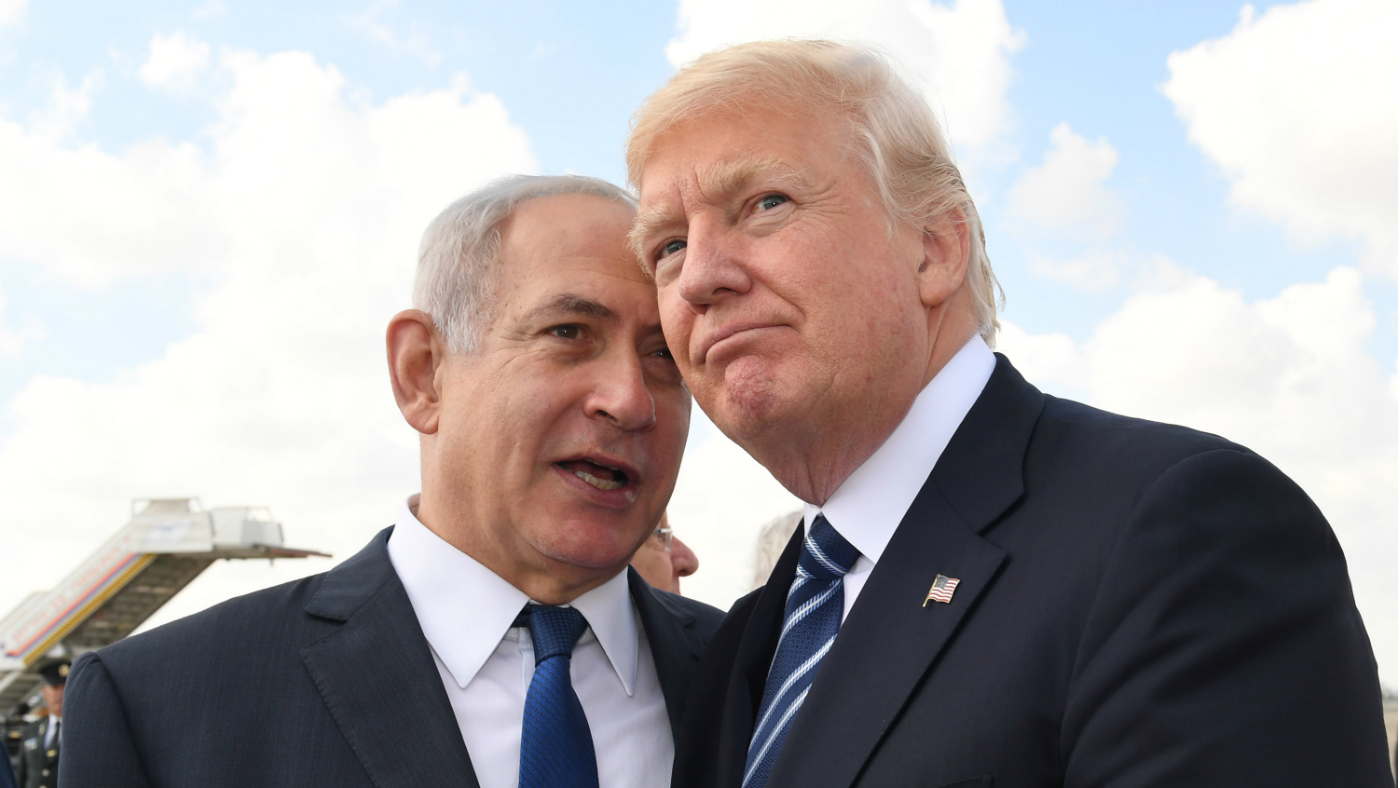Why the US embassy move to Jerusalem is so controversial
Decision upends decades of US diplomacy and threatens to spark unrest in Middle East

A free daily email with the biggest news stories of the day – and the best features from TheWeek.com
You are now subscribed
Your newsletter sign-up was successful
Donald Trump’s daughter Ivanka and her husband Jared Kushner are in Israel for the official opening ceremony of the US embassy in Jerusalem today.
The embassy’s move from Tel Aviv is being celebrated by Israel but has triggered overwhelming global opposition. So what is the root of this conflict?
Why is Jerusalem so contentious?
The Week
Escape your echo chamber. Get the facts behind the news, plus analysis from multiple perspectives.

Sign up for The Week's Free Newsletters
From our morning news briefing to a weekly Good News Newsletter, get the best of The Week delivered directly to your inbox.
From our morning news briefing to a weekly Good News Newsletter, get the best of The Week delivered directly to your inbox.
Since the establishment of Israel in 1948, the US and most other nations have not recognised any country’s sovereignty over Jerusalem, which is holy to Jews, Muslims and Christians.
The Israeli government claims Jerusalem as its capital, but the Palestinian National Authority (PA) considers East Jerusalem to be Palestinian territory, illegally occupied by Israel since the 1967 Arab-Israeli War.
Israel has built more than a dozen settlements in East Jerusalem, with an estimated 200,000 Jews living there, but the United Nations Security Council considers this to be an occupied Palestinian territory.
The US and other countries therefore kept their embassies in Tel Aviv in order to avoid inflaming tensions or undermining future negotiations over the city’s status.
A free daily email with the biggest news stories of the day – and the best features from TheWeek.com
What is Trump’s aim?
The US president’s supporters believe that an official recognition of Jerusalem as the Israeli capital could be a building block towards a peace agreement.
Upending almost seven decades of American foreign policy, Trump announced last December: “We want an agreement that is a great deal for the Israelis and a great deal for the Palestinians. The United States would support a two state solution if agreed to by both sides.”
Israeli Prime Minister Benjamin Netanyahu wants other countries to follow America’s lead, “because it’s the right thing to do”.
Addressing dignitaries at the Israeli Foreign Ministry yesterday, Netanyahu said: “Move your embassies to Jerusalem because it advances peace, and that’s because you can’t base peace on a foundation of lies.”
How has the world reacted?
“Most of Europe has vehemently opposed the US embassy move,” says The Times. “Only four EU countries have broken ranks and decided to send ambassadors to today’s inauguration - Austria, the Czech Republic, Romania and Hungary.”
Of the 86 countries with diplomatic missions in Israel invited to the event, only 33 confirmed they would attend.
The Israel Defence Forces are expecting today to be “one of the most violent days in Gaza” since protests against the US embassy move began at the end of March, adds the newspaper.
Palestinian President Mahmoud Abbas has described the move as the “slap of the century”.
Professor Yossi Mekelberg, from Chatham House’s Middle East and North Africa Programme, told The Independent: “Jerusalem is holy to Jews, Muslims and Christians; it is one of the most sensitive places on planet Earth. Any change to the status quo is explosive and incendiary.”
The ramifications could also be felt further afield: Turkish President Recep Tayyip Erdogan has threatened to cut diplomatic ties with the US, while Saudi Arabia’s King Salman has said that “such a dangerous step is likely to inflame the passions of Muslims around the world”.
-
 6 of the world’s most accessible destinations
6 of the world’s most accessible destinationsThe Week Recommends Experience all of Berlin, Singapore and Sydney
-
 How the FCC’s ‘equal time’ rule works
How the FCC’s ‘equal time’ rule worksIn the Spotlight The law is at the heart of the Colbert-CBS conflict
-
 What is the endgame in the DHS shutdown?
What is the endgame in the DHS shutdown?Today’s Big Question Democrats want to rein in ICE’s immigration crackdown
-
 Witkoff and Kushner tackle Ukraine, Iran in Geneva
Witkoff and Kushner tackle Ukraine, Iran in GenevaSpeed Read Steve Witkoff and Jared Kushner held negotiations aimed at securing a nuclear deal with Iran and an end to Russia’s war in Ukraine
-
 Kurt Olsen: Trump’s ‘Stop the Steal’ lawyer playing a major White House role
Kurt Olsen: Trump’s ‘Stop the Steal’ lawyer playing a major White House roleIn the Spotlight Olsen reportedly has access to significant US intelligence
-
 Trump’s EPA kills legal basis for federal climate policy
Trump’s EPA kills legal basis for federal climate policySpeed Read The government’s authority to regulate several planet-warming pollutants has been repealed
-
 House votes to end Trump’s Canada tariffs
House votes to end Trump’s Canada tariffsSpeed Read Six Republicans joined with Democrats to repeal the president’s tariffs
-
 Bondi, Democrats clash over Epstein in hearing
Bondi, Democrats clash over Epstein in hearingSpeed Read Attorney General Pam Bondi ignored survivors of convicted sex offender Jeffrey Epstein and demanded that Democrats apologize to Trump
-
 Judge blocks Trump suit for Michigan voter rolls
Judge blocks Trump suit for Michigan voter rollsSpeed Read A Trump-appointed federal judge rejected the administration’s demand for voters’ personal data
-
 US to send 200 troops to Nigeria to train army
US to send 200 troops to Nigeria to train armySpeed Read Trump has accused the West African government of failing to protect Christians from terrorist attacks
-
 Grand jury rejects charging 6 Democrats for ‘orders’ video
Grand jury rejects charging 6 Democrats for ‘orders’ videoSpeed Read The jury refused to indict Democratic lawmakers for a video in which they urged military members to resist illegal orders